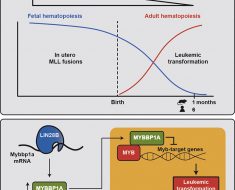Researchers say people with alcoholism can have trouble recognizing emotions expressed by others as well as by themselves. The effects can linger for years.

Alcoholism can strain relationships in a number of ways. Now new research has revealed another issue: deterioration in the physical ability to communicate.
It’s well-known that heavy drinking can lead to slurred speech in the short term. And previous research has found that chronic heavy drinking can have long-term impacts on the ability to perceive and differentiate between the emotions expressed by others.
But a new study suggests that alcoholism can lead to a loss of the ability to express different emotions through tone of voice.
Imagine telling someone, “See you tomorrow.” Said in one tone of voice, the phrase can sound like you’re looking forward to seeing them. Said in another, it can sound like you’re wishing you didn’t have to see them.
People with alcoholism, the new study finds, are less able to convey those messages through their tone of voice, potentially leading to confusion and harm in relationships.
In the study, participants in Britain listened to recordings of sentences spoken by people recovering from alcoholism and by those in a control group.
The listeners had more trouble recognizing the intended emotions in sentences spoken by those with alcoholism.
They judged their voices as “less expressive,” “rougher,” and “more flat,” said Silke Paulmann, a cognitive sciences professor at the University of Essex who helped lead the new study.
The voices of people with alcoholism were also found to be less varied and quieter in pitch.
“Our data clearly indicate that they can modulate pitch, but do so less effectively,” Paulmann told Healthline.
Effects linger
Paulmann and her colleagues also determined that these effects likely last long after someone has quit drinking.
That makes them different than some others tied to heavy drinking.
The ability to perceive and remember the locations of objects, for example, fades with long-term heavy drinking, but it can come back through abstinence, according to the National Institute of Alcohol Abuse and Alcoholism.
Improvements can also be seen in reversing short-term memory loss, attention span deficiencies, and problem-solving abilities.
But research, including a 2007 study and one from 2015, has found the lack of ability to perceive different emotions, both visually and verbally, can last long into recovery.
That’s also true for the ability to adequately convey different emotions, according to Paulmann’s research.
The reason isn’t yet clear, but Paulmann says it’s likely either due to damage to the vocal chords or damage to the brain.
On the latter, Paulmann notes that the right side of the brain is key to producing emotions as well as affecting voice pitch.
“Heavy drinking has been linked to brain atrophy in the right hemisphere,” she said. “We don’t have scans of our participants, but if their brain has been affected by their drinking history, this may explain the differences as well.”
What can be done?
Other additional research is needed.
The new study only included 15 people recovering from alcoholism. And it remains largely unclear how people with alcoholism might overcome these communication barriers.
But just as admitting the problem is the first step of recovery, pointing out a possible problem is the first step in addressing it.
The researchers don’t know the exact mechanisms causing the communication problems, and they don’t know how to overcome them. But the hope is that their findings will be a start down the road to those answers.
Speech therapists didn’t have any thoughts on how loved ones can cope with these communication problems in people recovering from alcoholism. In fact, they weren’t even familiar with the issue.
Paulmann says that even just raising awareness of the issue would hopefully help both those in recovery and their families pay more attention to tone of voice.
“On the receiver’s end, some of the communication problems in families might be less severe if the parties involved understand that it is not indifference that leads to ‘less expressive’ reactions,” she said.
People recovering from alcoholism could also be mindful of expressing emotions through tone of voice if they’re aware they aren’t being as expressive as they might’ve thought.
Paulmann suggests they could also benefit from the sort of pitch modulation training speech therapists do with children.
Source: Read Full Article





